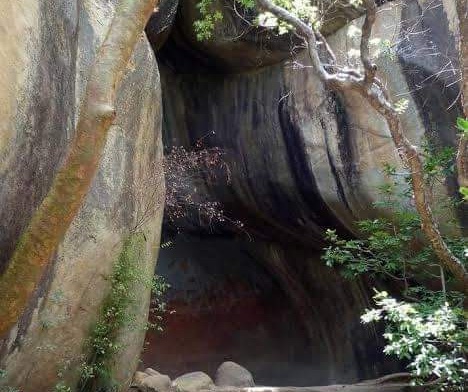Some Chiefs in Matabeleland have called on the National Chiefs Council to investigate the alleged King Munhumutapa seeking to conduct rituals at some of the spiritual shrines.
The ruling party ZANU-PF had written a letter to the National Museums and Monuments to give clearance/referral letters to King Munhumutapa and three others to conduct national rituals at Matopos and Great Zimbabwe monuments.
However, the Minister of Local Government and Public Works, Daniel Garwe, dismissed the claim of Timothy Chiminya Mujuru being King Munhumutapa, as the Zimbabwean Constitution does not have a provision for kingship.
“Section 283 (a) of the Constitution of Zimbabwe Amendment (No.20) Act of 2013, as read with Section 3(1) and (2) of the Traditional Leaders Act (Chapter 29:17), provides that the appointment, removal, and suspension of chiefs must be done by the President on the recommendation of the provincial assembly of chiefs through the National Council of Chiefs and the Minister responsible for traditional leaders, and in accordance with the prevailing traditional practices and traditions of the communities concerned. It is apparent that this person is not a chief either, since he was not appointed in terms of the legal provisions,” he said.
Chief Masuku of Matopo clarified that if the individual comes to Njelele, he should not represent himself as the king, as he won’t be allowed in the traditional shrines.
“The problem is I am not aware of King Munhumutapa because I don’t know any official king in our country, and when he comes to Njelele he should not come as a king because we are not going to allow him,” he said.
Chief Masuku explained that anyone can go to Njelele depending on the challenge they are encountering and want to present.
“Anyone can go depending on a challenge they have, wanting to present it there, needing help, but when going to a place saying you are king, yet as leaders we know that we don’t have a king in our country. There are a lot of people who call themselves king, others are saying they are King Mambo, King Munhumutapa, King Khumalo, so that’s not how we work, we work according to the law,” he said.
Additionally, Chief Mathema stated that sacred shrines have certain families that deal with them.
“It’s saddening to hear that some people are coming from other areas who want to do a job that is not theirs. In the first place, as chiefs, we don’t know about this journey. Before everything else, there is a need to find out where these people are coming from and who sent them in the first place because you cannot just wake up and say you want to go to these sacred places or ancestral sites without anyone directing you. I don’t think so; these are respected houses,” he said.
He added that even chiefs don’t go to sacred shrines, as there are designated houses which handle such matters. “We just remind them to say it’s dry, do something so that people can get water, they then arise and do the rituals.”
“Whose tradition are they going to be teaching because culture is different? Kalangas have their own culture, Vendas have their own culture, Ndelebeles, Nambiyas, Tonga, Shona and even Tshangane all have their diverse cultures, so what are they going to be teaching,” said Chief Mathema.
Chief Mathema urged the National Chiefs Council to look into the matter as it is likely to cause some problems in the Matabeleland region if it is not attended to.
Chief Masuku of Gwanda said Chiefs have been told several times that the Constitution does not accommodate a king.
“We have been told over and over to the extent that we now understand that the Zimbabwean Constitution does not accommodate a king, so where is this one coming from and how does he work? It’s hard to understand.
“The second thing, in our culture, certain people go to Njelele. I don’t even go there, so I don’t know whether he is also one of those families or has the spirit to go to Njelele. It’s difficult to say he should not go there, maybe he is one of the people with that spirit; it’s also difficult to say he should go, maybe he is not one of them. It’s hard to talk about someone you don’t know,” he said.

